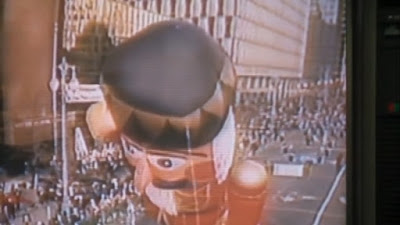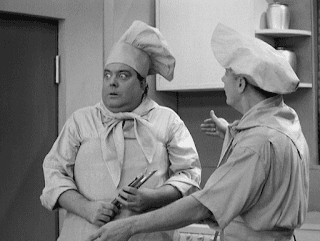Continuing my "Airlines of YesterYear" series, I'd like to touch on another short-lived company featured in Arthur Frommer's Budget Traveler magazine during the 90s. That article really caught my interest in learning more about the "lesser-known" airlines. You can head to the Collections Tab (after reading this, of course) and read about the several other airlines I've written about. I've covered airlines from Business Express to AccessAir and, most recently, Vanguard Airlines. Today, we're going to take a look at a short-lived upstart from the 1990s... Pro Air.
Pro Air was a low-cost airline created by an attorney and entrepreneur named Kevin Stamper in July of 1997. Stamper hoped to serve the Detroit metropolitan area from the centrally located but much smaller and less busy Detroit City Airport. Interestingly, Pro Air's headquarters was located in Seattle, a city nearly two thousand miles away. It was also a city that the airline didn't even fly to daily for most of its tenure.
Mr. Stamper had once been a lawyer at Boeing and settled his family in Boeing's hometown of Seattle, Washington area. After working at Boeing, Stamper became a managing partner in the "Crane, Stamper, Boese, Dunham, and Drury Law Firm." Kevin received some publicity in the late 80s for suing Coca-Cola to bring back "Original Coke," but he was more involved in entrepreneurial enterprises than his legal wrangling. Eventually, his life's path led him to create Pro Air.
Not eager to leave the Emerald City, he would establish Pro Air's main offices in Seattle's Lower Queen Anne area. Occupying part of the third floor of the Seattle Post Intelligencer building, the entire corporate and operations part of the airline was three time zones away from the airline's day-to-day base of operations in Detroit.
As a funny side note, not only was the airline's headquarters in a city they only served a handful of times a week, but their telephone reservations center was in a very remote, rural coal mining town in West Virginia. The closest destination the airline served was Baltimore, a 7-hour drive away. Supposedly, all but one of the agents had never even been on an airplane!
Stamper's business plans initially called for the airline to provide sports charters to professional sports teams, leading to the name "PRO" Air. When the lucrative, full-time, professional contracts didn't materialize immediately, the focus quickly changed to low-fare, scheduled service.
Pro Air charged extremely low fares and developed several Detroit area business partnerships but was consistently plagued with low passenger loads, delayed flights due to mechanical or crew staffing issues, or other self-inflicted wounds.
Rather than advertise for some time before launching operations, Pro Air's first public announcement came less than 24 hours before their first flight on July 4, 1997. They spent the early days of the airline flying virtually empty airplanes around the route map until the public took notice.
Being based in Detroit, the airline competed directly with Northwest Airlines on most, if not all, routes. However, Northwest operated out of the much larger Detroit Metro Wayne County Airport (DTW.)
Starting operations with a single fare for all passengers, Pro Air eventually implemented tiered fares with advance purchase requirements close to the airline's second anniversary.
Pro Air advertised "hot meal service" on every route, including the 35-minute flight between Detroit and Chicago. The airline also served premium alcohol in First Class and only charged $2 for beer and wine in Economy. A former airline employee said they scrapped meals when they reportedly determined the cost of each meal accounted for (on average) over 15% of the fare each customer paid. They continued serving meals in First Class.
Pro Air introduced one of the lowest fares ever advertised by an airline flying into New York City, where a single traveler headed to La Guardia would pay only $59. Years later, this low fare was topped with Spirit Airlines' ridiculous gimmick "Penny Fares" ($0.01 per ticket) on the same route from Detroit to New York.
A "Founder's Fare" was offered for a short term for returning customers, offering deep discounts on most routes. The airline also developed contracts with Detroit-area vehicle manufacturers General Motors and Chrysler, allowing employees of the automakers to fly with discounted fares as low as $30 each way on select flights.
Pro Air operated a fairly significant route structure compared to its fleet size. The airline flew to several cities in Florida (Orlando, Tampa, and Fort Myers), both Newark and La Guardia in the New York City Area, as well as flights to Atlanta, Baltimore, Chicago, Indianapolis, Milwaukee, Philadelphia, and Seattle.
The Florida service resulted from a contract with a local Detroit wholesale travel agency. The tour operator purchased 2/3rd of all seats on the flight at a slight bulk rate discount and resold them at a premium. This left Pro Air a guaranteed number of sales and a much smaller number of remaining seats to sell.
Detroit City Airport was centrally located but was hindered by its lack of sizeable runways. The longest runway is only 5,090 feet long, much less than the 8,500 feet of the shortest runway at DTW. The short runway length at Detroit City required a lower takeoff weight for Pro Air's Boeing 737s to take off safely. This caused the airline's longer flights, Florida and Seattle, to stop for additional fuel along the way. The Seattle flights stopped in Chicago, and the Florida destinations stopped in Atlanta. Pro Air advertised and sold tickets on the second leg of each journey as if it were a different flight. This requirement to stop for fuel upset many customers, who, if not paying close enough attention to the details on their tickets, had thought they purchased tickets on a non-stop flight.
 |
| Pro Air's Route Map As Of February 24, 2000, courtesy DepartedFlights.Com |
By January 2000, Pro Air had discontinued service to Fort Myers, Milwaukee, and Tampa. The airline was facing significant financial struggles as customers stopped purchasing tickets, causing low passenger counts to get even lower.
On July 2, 2000, a Pro Air jet taxied into a luggage conveyor belt in Orlando. No one was hurt in the incident, but the plane's left wing was so severely damaged that the FAA determined the event met the threshold to be legally considered an "accident" and not just an "incident." The subsequent investigation determined the pilot ignored numerous signals before colliding with the belt, and further investigations by the FAA revealed several other safety violations and record-keeping issues with the airline.
On September 18, 2000, the FAA grounded Pro Air based on the results of the complete investigation.
The FAA issued a statement: "Continuing maintenance, oversight, quality control, and record-keeping problems resulted in widespread failures to comply with applicable federal aviation regulations." The FAA said the airline "lacks the qualifications of the holder of an air carrier certificate." They finished the statement by saying they were using an emergency order to revoke Pro Air's operating certificate.
When Pro Air was shut down, it issued a press release stating it would immediately appeal the FAA order. Two days later, on September 20, Pro Air filed for Chapter 11 bankruptcy. Company President Craig Belmondo said in a statement, "We are taking Chapter 11 action at this point to preserve our existing resources, including our fleet of aircraft. We are confident that we will be resuming scheduled operations following the completion of the appeals process, and we need to be in a position to recommence scheduled operations on an expedited basis."
The airline sought permission to resume operations pending the National Transportation Safety Board review of the FAA's investigation. When filing its appeal, it claimed the federal agency's order was "issued erroneously and based on incorrect and outdated information."
The NTSB rejected the company's request days later on September 28. Following this denial, the airline closed its doors for good.
Northwest Airlines provided confirmed Pro Air customers on matching routes a standby ticket, which did not always guarantee boarding. Northwest Airlines' spokesman at the time, Jon Austin, said to ABC News, "We will take for standby travel anybody who's holding a confirmed ticket for Pro Air, that is, anybody who's paid them money."
In the middle of building up its own operation in Detroit, Spirit Airlines announced that it would honor Pro Air tickets through September 30, or twelve days after the airline shut down. Spirit, however, would only honor the tickets between Detroit and La Guardia or between Detroit and Orlando.
In a statement, the FAA considered Pro Air's grounding to have "extremely minimal" effect on the flying public. Ouch.
Throughout its existence, the airline only ever operated a small fleet of Boeing 737 aircraft. They opened operations with two -400 variants and, at the time of closure, had expanded to four aircraft (three 737-400s and one 737-300). Pro Air's aircraft were configured to hold 8 First Class and 138 Economy Class customers. Pro Air provided slightly increased legroom in both classes compared to the major airlines of the time.
Before its closure, the airline had ordered several McDonnell Douglas MD-90 aircraft. The airline never took delivery of the aircraft from the factory, but it was discovered after the airline went out of business that they had been painted and were close to entering service. Three painted but unused Pro Air MD-90s (green, blue, and red tails) can be seen in the photo below parked in an aircraft graveyard awaiting their new owner. You can also see Vanguard Airlines planes on the lower right, which, as I'm sure you read in this article, had also begun replacing its Boeing 737s with McDonnell Douglas aircraft around the same time Pro Air went under.
 |
After Pro Air's demise, General Motors (GM) released information that they had been in talks to offer their three corporate-configured Saab 2000 turboprop aircraft to the airline to be retrofitted and flown as "Pro Air Express" flights. GM also noted that they would have retained control of when and where the aircraft could be flown and that Pro Air would only operate them. However, the deal wasn't finalized before the airline was forced to shut down.
Much like with other airlines, it's difficult to find financial data from a privately held company from nearly 30 years ago. However, I've discovered unconfirmed reports posted on aviation message boards by folks who claim to have been Pro Air employees.
Reportedly, when the airline went out of business, it had $9.9 million in expenses with $8 million in revenue. As previously mentioned, the airline had begun cutting destinations from its route network because, as these former employees report, the airplanes were routinely filled to only 20% of capacity. The same former employee claims that the load factor (number of seats filled) for most of the airline's operations was approximately 35%.
Like many of the failed startup airlines, Pro Air failed to properly judge the impact of a legacy airline's ability to lower fares to match their own. In this case, Northwest Airlines offered a much wider network of destinations, multiple daily flights, and a significant frequent-flier and credit card program that lured potential customers away from Pro Air. Northwest also could sustain losses on routes in which they'd match or beat Pro Air's fare, making up the difference in higher ticket prices on long haul or international flying.
One can also look at Pro Air's route map as a problem. It was heavily focused on markets that tend to attract a person who travels for business rather than leisure. A leisure traveler is generally more concerned about discounted prices, while a business passenger would prefer the amenities and perks of flying an established airline. In my humble opinion, with a few months shy of 20 years of experience in the airline industry, the route map had far too many destinations for the few aircraft the airline operated. One maintenance issue could (and did) wreak havoc on their entire day's schedule. Also, limited aircraft and crew prevented daily flights to each city, which limited customers' options, causing them to look elsewhere.
Just before being shut down by the FAA in February of 2000, the airline had three of its four aircraft out of service for scheduled mandatory maintenance inspections. The inspections had been mis-scheduled, and all came due at once. This canceled over 60% of Pro Air's business for several days. The airline was also allegedly hemorrhaging money and owed United, Delta, and TWA money for maintenance and ground handling service in several outstations.
Several former "employees" (again, unverified message board posters) would say that before the airline's demise, management had quickly fallen back to their original desire to cater to professional sports teams and hastily accept charters. Pro Air routinely flew two Detroit teams, the NHL's Red Wings and MLB's Tigers, to their away games. Like other chartered flights the airline completed, this sports contract would create issues with the regular schedule.
If one team played in a city the airline regularly served, Pro Air would cancel the scheduled outbound flight and fly the team to their opponent's home city. After dropping off the team, Pro Air would fly the regularly scheduled flight back to Detroit. When it came time to fly back, Pro Air would fly the scheduled flight and then cancel the outbound to fly the sports team home. While the revenue may have been greater from a chartered flight, last-minute cancellations tell the regular customer they aren't as important to the airline.
Not exactly a way to earn repeat business.
The Ilitch family, who owns the Tigers and Red Wings, would drop Pro Air and purchase their own aircraft in 1999.
Still, several customers speak fondly of Pro Air on frequent flyer message boards. One customer said that he "flew Pro Air quite a bit, actually, and it was well worth the price. There really wasn't much service (just drinks, as I recall) on the flights themselves, but it was still great... I remember the staff being great and friendly."
As one message board member and former employee posted, "It was a fun place to work at first, but seeing the daily load reports (25% was a good day) quickly made you realize things weren't going too well."
Another user of the same message board enjoyed flying on Pro Air as a customer frequently but commented, "There was one Thanksgiving (1999, I think) that my family and I were trying to fly to LGA, but the plane was so far delayed coming in from ATL that we wouldn't have gotten in until 8 hours later than scheduled... We did not wait around to find out (if they canceled) and just rented a car at DET and drove to New York instead." That's a nine-and-a-half-hour drive, by the way. Despite that, the same user said, "... I found the airline very enjoyable. I think Pro Air cleaned it (DET) up very nicely... It was much more convenient for my family."
In the end, Pro Air undeniably made significant strides in making air travel more affordable. While the average American today may have no clue who Pro Air was, the positive impact of their service still resonates with many others.
Beneath the surface of positive memories from the past, however, a flawed business plan that, from the outset, posed challenges that led to the airline's downfall. Despite the commendable effort to provide budget-friendly air travel, the weaknesses in Pro Air's approach to business became evident rather quickly. While Pro Air tried to make air travel more affordable, the underlying issues with their business model, such as unsustainable cost structures or inefficient operations, couldn't be ignored.











.png)




Comments